
Where do we go from here?
As the nation moves into a new year and new administration, the country faces the pressing question of how institutions, the government, and individuals can respond to deep-seated systems of oppression and widespread racism. For the third installment in an ongoing series, Oregon Quarterly spoke with University of Oregon faculty members, alumni, community members, and students for perspectives and reflections.
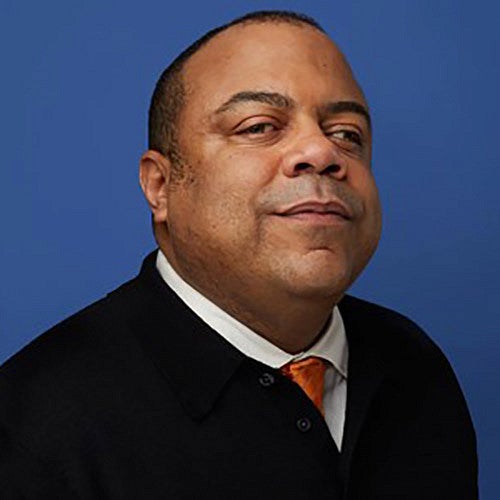
Eric Ward
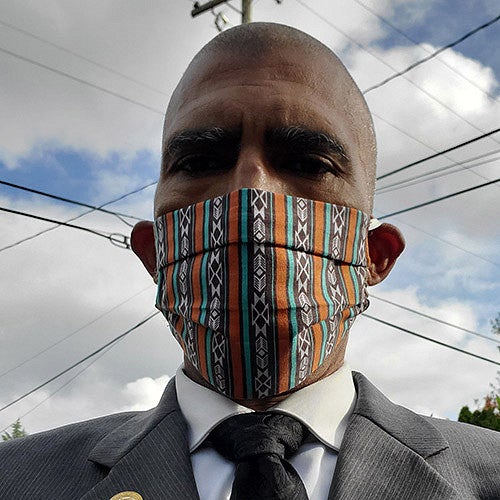
Eric Richardson
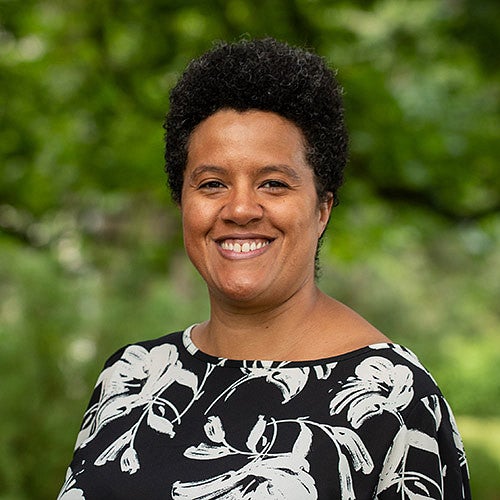
Camisha Russell
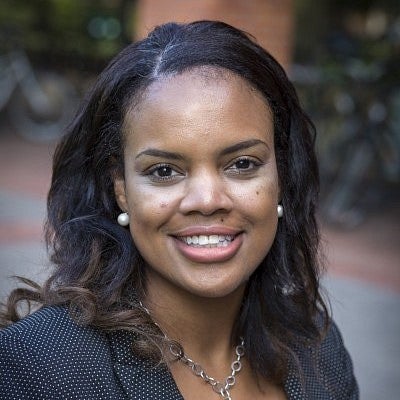
Lesley Anne-Pittard
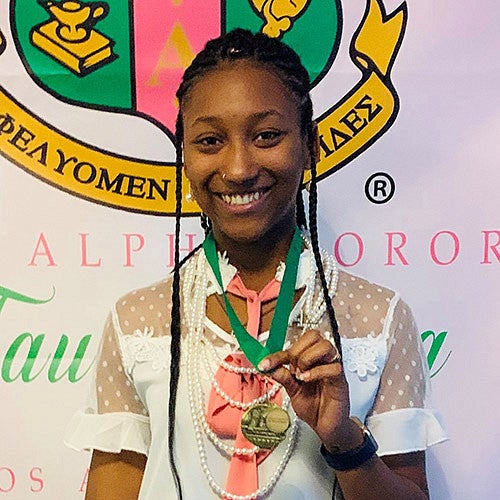
Jyhreh Johnson
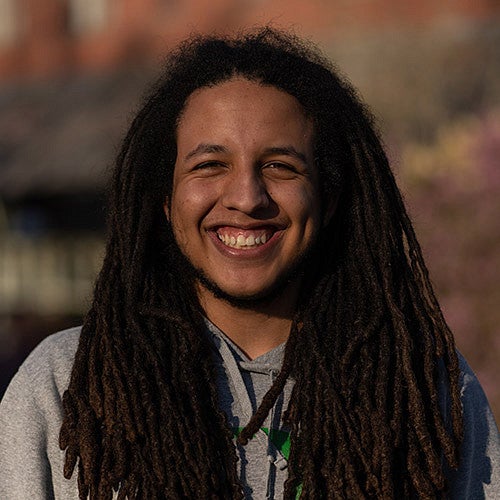
Isaiah Boyd
“Where does the country go from here? How can the Biden/Harris administration address racism and advance antiracism work?”
WARD: We are in a time of unprecedented mobilization for change, the early stages of the inclusive, multiracial democracy for which so many have fought and died—something no other country of our size has yet achieved. It’s time for us to reject messages of despair, to leave behind the cynicism about democracy that’s become fashionable on the left, and to stop giving oxygen to the narratives of fear and division. Our problems entering 2021 are real. One in every 800 Black Americans has been killed by COVID-19. Police violence against Black Americans is unabated, now complicated by the racialization of antiprotest ideology in law enforcement. Antisemitism is on the rise. An appalling number of workers and small businesses face ruin in the pandemic economy with little relief in sight. Climate crisis affects us all. It’s up to us to show America how beautiful an inclusive, multiracial democracy is. That means the courage to dream again, filling our minds and hearts and public spaces with possibility and courage, replacing the dystopian ugliness that’s dominated political discourse these last four years. It’s up to us to make sure our systems of governance are responsive, and that our universities are places where young people learn the skills of democratic practice. Universities are a critical part of civil society. As such, they must play a leadership role in de-escalating political violence on and off campus, and in opening up spaces for students to practice the skills of governance.
RICHARDSON: We have been on the path for moral clarity and existence as a nation for more than 244 years. This year represents the unvarnished thought about demographic change. A change has taken hold of our physical awareness years after we have struggled intellectually to come to grips with the validity and necessity of multicultural cooperation. The UO and other institutions of higher education must seek to give agency and support for the need to scrutinize the White Eurocentric/Supremist narrative that has dominated a multicultural world in the name of hegemony.
“What can the UO do to pursue meaningful antiracism measures on campus? What does it look like to be an antiracism leader in higher education?”
RUSSELL: The world is learning—I hope—that Black lives matter. But how do we take that recognition into our classrooms? Not just the classrooms where the course description says we’re going to talk about race or racism, but all our classrooms?
When we’re doing our jobs right, university classrooms are spaces for thought. So, what if we committed ourselves to the idea that Black thought matters?
What if Black thought mattered not just in Black studies or the Department of Indigenous, Race, and Ethnic Studies, but in all departments?
Let me be clear. I’m not asking people to teach outside their specialties. And I’m certainly not trying to imply that Black thinkers are so simple, or their scholarship so ahistorical, that anyone can teach them. Black studies, ethnic studies, and departmental specialists still bring irreplaceable intellectual experience and contributions to the university community.
Rather, I’m asking professors, Black and non-Black, to seek out and include the Black thought that already exists within their specialties. In some cases, this will mean including an historical Black thinker who was in conversation with the canonical figures of one’s discipline, even if those canonical figures weren’t conversing back. In other cases, this will mean including secondary literature on canonical figures written more recently by Black academics. In many cases, it will simply involve including the work on Black experts in classes on contemporary research and issues.
Ultimately, Black people die many different types of death—physical, social, and otherwise. From police violence, to COVID-19, to mass incarceration. Being rendered invisible in the history knowledge production is just one type. But it’s one we can stop. Right now. One classroom at a time.
PITTARD: One of the most important ways we can move toward the goal of being an antiracist campus is through having the courage to talk about our differences. We are launching a dialogue series on campus intended to create authentic and civil spaces for discussion around social and racial justice. Courageous Conversations will aim to reinforce community, build trust, and promote alignment towards a positive campus climate.
Creating some space and place for us to engage in a courageous way will help us strengthen these muscles and ability to lead with listening and understanding one another. To achieve this really big goal of being an antiracist campus, we need to reckon with our humanity. How can we coexist in our differences?
This will be a big step forward for our campus. What I hear often is that the bigger goal is overwhelming, and people aren’t sure how to show up for it. Courageous Conversations will be a way to help us explore how we find understanding and action around relevant issues within our units that are often hard to discuss with our colleagues. We want to provide some infrastructure, support, and training to help people have conversations courageously.
We can establish what kind of campus we want to be, with different experiences and perspectives. This will be an opportunity for each of us to be the change. I believe systemic change happens most profoundly at the individual level. We want to embolden individual and collective impact to address and solve systemic barriers.
“What can individuals do to address widespread racism in our communities? What kinds of conversations can students have? What does it look like to be a student doing meaningful antiracism work both on the UO campus and in our communities?”
JOHNSON: Individuals can address widespread racism by recognizing the microaggressions that are present. The primary one I am referring to is “I don’t see color.” In my opinion, saying “I don’t see color” is just as bad as participating in a racist act. The truth is that everyone DOES see color, it’s the first thing you notice about someone when you meet them in-person or even virtually. Instead of saying “I don’t see color,” individuals could say, “I see and acknowledge your racial injustices and want to learn ways to advocate for you and your impacted community.” Or something along these lines. Once they “see” the color, then individuals can actually help in promoting awareness of racial inequalities in our communities.
Students should be having conversations like: “I don’t just see you as a token Black or BIPOC friend. I value your life, our friendship, and the fight that is currently going on between your community and racism and I would like to join you as an ally.” Too many times when I have spoken to other students about racism they are swift to say, “Oh, but I have a Black friend/family member/or significant other.” That’s great and all, but that does not mean that you having this relationship can give you an excuse to not having a voice in this matter. All of our voices matter no matter the color of our skin. Individuals can host discussion groups that house safe spaces for students to talk about race and how they have experienced racism on the UO campus
BOYD: The most important step toward addressing widespread racism within our communities is to begin educating ourselves and others about the institutions that perpetuate it. Racism is built upon structural mechanisms that disproportionately affect individuals of color. By understanding the ways that these mechanisms persist in our communities we can then start to find ways to dismantle them.
Students play a fundamental role in challenging the widespread racism that has emerged throughout our communities. Collectively, we can create safe spaces to discuss the impacts of racism within our communities and explore our individual roles in the mechanisms that perpetuate it. Students can have a fundamental role in reshaping how society progresses forward and away from racist institutions. Students must become engaged in the discussions around how to change racist institutions, question the policies that disproportionately target BIPOC individuals, and actively participate in even the smallest forms of civic engagement.
Meaningful antiracism efforts and initiatives should be structured around the creation of space for those that are systematically disenfranchised. Meaningful antiracism efforts are using inherent privileges to support the voices of the marginalized, and knowing when to step aside for BIPOC individuals to assume space.
There are a variety of student organizations and initiatives from the student government that students can engage with to help dismantle institutional racism. Become an ally, educate yourselves on racial institutions, recognize the privilege of your racial identity, identify unconscious biases, and most important, create spaces for candid conversation about racism to occur and challenge the spaces that perpetuate racism.
Related Links:

